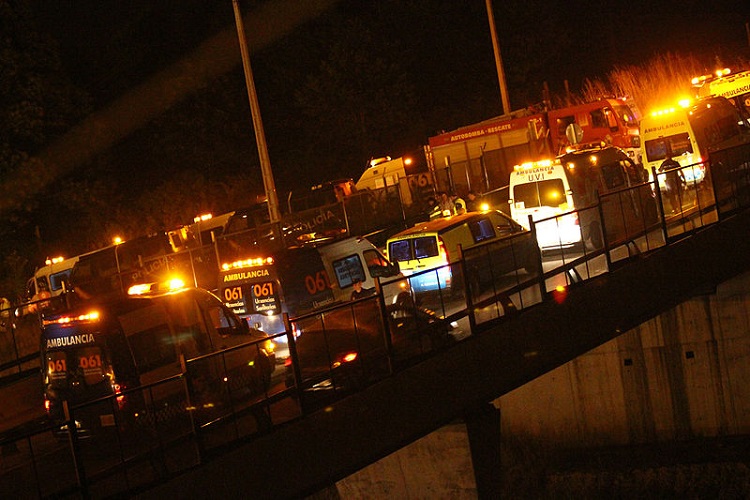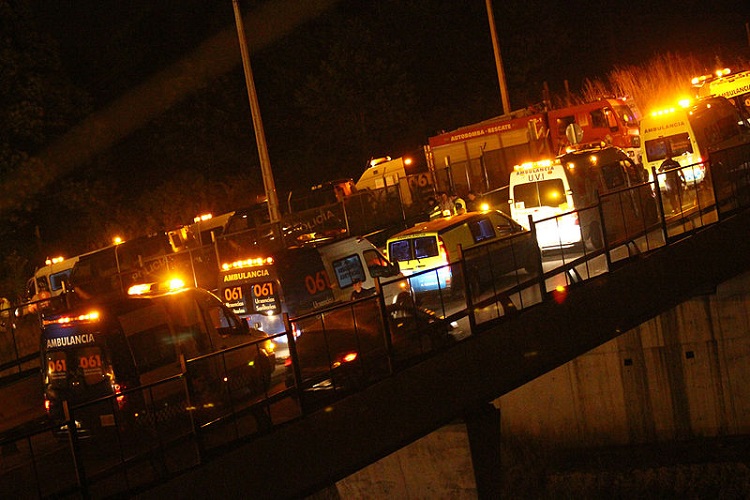

Photo by Contando Estrelas.
By Michael Morse
It’s crazy in there….people screaming, confusion, and chaos so contagious that even the dog looks worried. An elderly woman is lying in her bed, struggling to breathe. Surrounding her are her well-intentioned, but not helpful, family—sons, daughters, brothers, sisters, and a grandchild or two.
She is sucking on her empty inhaler for all it is worth, her skin a pallid blue, eyes wide, jugular veins distended.
“Move it!” I say. The assembly ignores me.
“Get out of the way!” I say. They move closer to the patient, suffocating her. She says something; the crowd roars, more pandemonium ensues, and things go downhill even faster.
“Who here speaks English?” I ask, elbowing my way through the crowd.
Nobody. Not a one. Seven thousand people crammed into a 12 × 12 bedroom, and a language barrier keeps us worlds apart. It doesn’t matter, though; an asthma attack looks the same in Spanish as it does in English. So does a medic on a mission.
The message to “make room” finally sinks in. The seas part, and I’m able to get to Amaryllis, whose panic subsides a little. The stair chair arrives. I put a nonrebreather that my partner had deftly modified into a breathing treatment delivery system over her face. The airway clears, just a little, but a little is a lot for the patient. We begin to move.
Like the sun breaking through the clouds, a little angel appears in the doorway. Everybody looks at her, dozens of eyes on a little seven-year-old girl whose grandmother is masked, panicked, strapped to a chair by men in uniforms, and being wheeled out of her home.
“That’s my Granmama,” she says nervously. “She has asthma.” She hands me a bag of medications and asks if she can come in the ambulance.
“Of course, you can. You are the most important person here right now,” I tell her. She leads the way, her nervousness gone. Her family stands to the side as we wheel out the patient and follow the little girl who, in the Dominican Republic, would be just a little kid. But here and now she is the leader of the family. She tells us all about Granmama as we treat her, switching from Spanish to English with ease. Kids grow up fast when everybody is depending on them—fast and well. But those little angels are not always going to magically appear.
As an emergency medical services engine company, our mission is to treat the sick and injured to the best of our abilities. Sometimes, doing our best includes doing it in a different language. Every member of the company that takes the time to learn a few vital phrases in a language other than English makes the company, as a whole, better. The company officer is in the best position to lead by example. Asking the crew a few questions in a different language keeps everybody sharp and changes the tone from resentment toward understanding.
It makes sense to figure out how best to communicate with our patients, many of whom have made the effort to learn basic English. Unfortunately, in an emergency, people tend to revert to their native language, and all of the coaxing in the world to “speak English” does no good.
We are the professionals on an emergency scene; it is we whom people depend on. We are not struggling to find the right words while filled with worry; we are simply doing our job to the best of our abilities. Communicating with our patients is the first step toward properly treating them. It is not necessary to master a different language to do so. Each and every member of the company benefits when everybody makes an effort to improve their skills.
The Basics
- What is your name?
- Are you in pain?
- Where is this pain?
- When did it start?
- Do you have health problems?
- Do you take medications?
www.spanishforfirstresponders.com
Asking questions is the easy part; understanding answers gets tricky. I have found that once a patient feels even a little bit understood, his stress level greatly decreases and he understands his part in the communications puzzle. He can then try harder to get his message through so we can administer better emergency medical treatment. Vital signs and observations are the same in all languages. When some basic information derived from proper communication is added, everybody wins.
 Michael Morse is a former captain with the Providence (RI) Fire Department (PFD), an author, and a popular columnist. He served on PFD’s Engine Co. 2., Engine Co. 9, and Ladder Co. 4 for 10 years prior to becoming an EMT-C on Rescue Co 1 and Captain of Rescue Co. 5.
Michael Morse is a former captain with the Providence (RI) Fire Department (PFD), an author, and a popular columnist. He served on PFD’s Engine Co. 2., Engine Co. 9, and Ladder Co. 4 for 10 years prior to becoming an EMT-C on Rescue Co 1 and Captain of Rescue Co. 5.
Engine Company EMS: Frequent Flyers
Engine Company EMS: Understanding Addiction and Naloxone
Engine Company EMS: Giving Birth
Engine Company EMS: Using the Tools at Our Disposal
Engine Company EMS: Firefighters Directing Traffic

